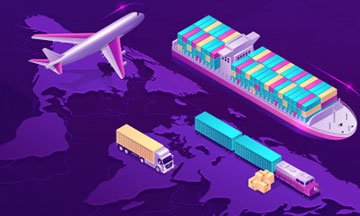Product Lifecycle Management Course
| Date | Venue | Duration | Fees | |
|---|---|---|---|---|
| 13 May - 17 May, 2024 | Dubai | 5 Days | $4750 | Register |
| 10 Jun - 14 Jun, 2024 | Dubai | 5 Days | $4750 | Register |
| 24 Jun - 05 Jul, 2024 | Berlin | 10 Days | $9850 | Register |
| 08 Jul - 12 Jul, 2024 | Dubai | 5 Days | $4750 | Register |
| 05 Aug - 09 Aug, 2024 | Dubai | 5 Days | $4750 | Register |
| 19 Aug - 30 Aug, 2024 | Istanbul | 10 Days | $9850 | Register |
| 02 Sep - 06 Sep, 2024 | Istanbul | 5 Days | $5695 | Register |
| 16 Sep - 20 Sep, 2024 | Dubai | 5 Days | $4750 | Register |
| 30 Sep - 04 Oct, 2024 | Toronto | 5 Days | $5695 | Register |
| 07 Oct - 11 Oct, 2024 | Dubai | 5 Days | $4750 | Register |
| 11 Nov - 15 Nov, 2024 | Dubai | 5 Days | $4750 | Register |
| 02 Dec - 13 Dec, 2024 | Cairo | 10 Days | $9150 | Register |
| 02 Dec - 06 Dec, 2024 | Dubai | 5 Days | $4750 | Register |
Course Overview
What is the product lifecycle process?
Product Lifecycle Management (PLM) is a systematic approach to managing the changes a product goes through in its lifecycle. This is from inception, through design, prototype, and manufacture. It continues towards – launch and marketing, and ultimately retirement from the market. Product lifecycle management is considered, by many, one of the strategic pillars of an organisation’s IT structure.
The emergency of technology and digital facilities has changed the way products are designed and brought to market, and this has given rise to new modern techniques. This course will introduce you to different topics. These subjects will prove vital to how you define, develop, launch, and retire products and services. This will also impact how you include features that satisfy the needs of the customer.
An increasing number of organisations are head-hunting for expert PLM professionals. This Zoe Training Course will empower professionals who can optimise the product development process and make it much faster, simpler, and cost-efficient. They can integrate data, workflows, and systems across the value chain, which leads to augmented productivity.
What is an example of PLM?
This Zoe programme introduces you to definitions of PLM, terminology, concepts, and tools. Participants will learn concepts, tools, and techniques in Design Thinking, Lean Management, and Agile principles. Delegates will be able to align them with the outcomes of Value, Flow, and Quality. The principles and techniques will enable the participants to experience a mindset shift. This shift will change how you approach work and lead you towards better and more impactful outcomes.
The key focus of this Zoe training course is to unify the people, data, processes, and systems associated with the product lifecycle. This will result in several significant benefits, including fewer production errors, fewer iterations, and, eventually, increased market speed.
Course Objectives
The objectives of this course are to empower professionals taking this course with:
- An in-depth appreciation of the product lifecycle and the importance of product management
- Understanding of the stages of product lifecycle management and the elements associated with each stage
- For a product in the “market,” understanding the phases of a product lifecycle is key.
- Understanding of the principles of Design Thinking, Lean Mindset, and Agile Principles and aligning them with the outcomes of Value, Flow, and Quality
- Examples of best practises for various stages in the product lifecycle
- The identification and process of knowing how to retire a product when the time is appropriate.
- Confidence and experience in managing the product lifecycle and understanding some of the key challenges are required.
- The necessary skills, knowledge, and perspective to participate in or independently devise an effective product strategy for the organisation, as well as successfully develop and launch products in accordance with this strategy.
- The identification and the difference between project-led and product-led organisations
- The understanding of how to create a customer-oriented product mindset and culture
- The understanding and capability of Product Lifecycle practises and tools required to take an idea through the entire product lifecycle
Training Methodology
This collaborative Product Lifecycle Management Course will comprise the following training methods:
- Lectures
- Seminars & Presentations
- Group Discussions
- Assignments
- Case Studies & Functional Exercises
Aligned with all our calibrated methodology, this program also follows the ‘Do-Review-Learn-Apply’ model.
Organisational Benefits
Some of the benefits of this course, through effective Product Lifecycle Management, to a business enterprise include:
- Quicker time-to-market
- Risks and costs are reduced
- Focus on innovation and product quality
- Effective design-to-cost price structure overview
- Target product costing that works
- Profitability forecasting
- Analysis of purchase prices and reliable cost estimates
- increase in efficiency both internally, as well as for customers and suppliers
- A workforce that embraces empirical change, to enable a culture that innovates and continually improves
- Increased customer and stakeholder satisfaction due to credible planning and management
- Exponential business growth due to improved, high-quality products, delivered as per customer expectation
Personal Benefits
Professionals attending this course will benefit and enhance their career prospects, as well as gain professional recognition through:
- Better understanding, awareness, knowledge, and the importance of efficient product lifecycle management
- Enhanced skills and knowledge to devise an effective product lifecycle strategy and successfully implement it in one’s organisation, thus contributing to high quality and timely product delivery
- Increased knowledge, capability, and experience in order to pursue advanced career opportunities as a Product Manager
- increased revenue generation and bottom-line profit via improved innovation and efficiency
- An understanding of the importance of vision, value, and strategy to effective product management is essential
- An authentic leader and a change agent, that enables a culture in which teams can flourish
- A sense of pride and satisfaction in contributing towards the overall lifecycle of a successful product
Who Should Attend?
This course is highly recommended for:
- Product managers and aspiring product managers who are considering transitioning into product management
- Associated professionals who wish to earn their recognition through certification
- Anyone new to the role of Product Manager
- Members of the Project Lifecycle Management project team and product marketing managers
- Project managers, Program Champions and Sponsors, and Business Subject Matter Experts who want to refresh, improve, and learn from real-life product lifecycle management case studies
- Members of the IT who will be actively involved in product design, development, prototyping, testing, and delivery
- Entrepreneurs and any other professional looking to obtain a basic understanding of the product lifecycle management process
Course Outline
Module 1: Introduction to Lifecycle Management
- Lifecycle Management Overview
- Introduction to Product Lifecycle Management
- The Advantages of a Product Lifecycle
- Why do organisations need product management?
- What is product management?
Module 2: Product Definition
- Product definitions
- Product examples
- Attributes of a product
- Product Development Frameworks
- Delivering customer value through products
- About product mindsets
- Getting started with a product mindset
Module 3: Product Management Value Flow Quality (VFQ) Framework
- Value Flow Quality (VFQ) guiding principles
- Delivering value early and often
- Optimizing the flow of work end-to-end
- Discovering quality with feedback
Module 4: Introduction to Product Lifecycle Project Phases
- Concept of the Beginning of Life (BoL)
- Development
- Prototype Launch Manufacture
- Middle of Life (MoL) Distribution
- Product Use
- Service
- End of Life (EoL):
- Retire
- Recycle
Module 5: Beginning of Life (BOL)
- Concept
- Design Thinking
- Innovation
- Development
- Kano model prototyping and validation
- Launch
- Promotion
- Marketing
- Manufacturing
Module 6: Middle of Life (MoL)
- Chains of Distribution, Sale, and Supply
- Expanding PLM across the value chain
- Product Use
- The four-phases of the product life-cycle, with examples
- Continuous Improvement and Development
- Maintain
- Support
- Sustain
Module 7: End of Life (EoL)
- Phase-out
- Retire
- Recycle
- Disposal
Module 8: Responsibilities of a Product Team
- Adaptive Leadership
- Three key areas of focus
- The role of a product team
- Responsibilities of a product team
Module 9: Sample Product Strategies
- Case Study Examples
- Hands-on case studies and exercises











